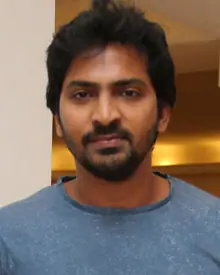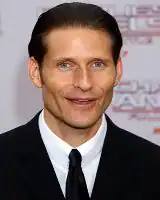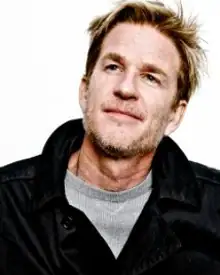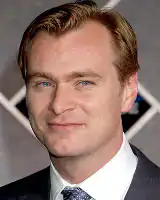X
Sylvester Stallone
Actor/Director/Producer
Sylvester Stallone Biography
Sylvester Gardenzio "Sly" Stallone is an Academy Award-nominated American actor, director, producer and screenwriter. One of the biggest box office draws in the world from the 1970s to the 1990s, Sylvester Stallone is an icon of machismo and Hollywood action heroism.
He has played two characters who have become a part of the American cultural lexicon: Rocky Balboa, the boxer who overcame all odds to fight for love and glory, and John Rambo, a courageous soldier who specialized in very violent rescue and revenge missions.
During the 1980s, he enjoyed phenomenal popularity and was one of the biggest movie stars in the world with the Rocky and Rambo franchises. Stallone's culturally influential films changed pop culture history and he has largely enjoyed a career on the Hollywood A list for over 30 years.
Stallone's use of the front entrance to the Philadelphia Museum of Art in the Rocky series led the area to be nicknamed the Rocky Steps. His popularity in Philadelphia has led to a statue of his Rocky character being placed permanently near the museum as a cultural landmark. Stallone's film Rocky has also been inducted into the National Film Registry as well as having its film props placed in the Smithsonian Museum as a national treasure.
Early Life
Stallone was born in New York City, the son of Frank Stallone, Sr., a hairdresser, and Jackie Stallone, an astrologer, former dancer and promoter of women's wrestling. Doctors used forceps during his birth that severed a nerve and caused paralysis in parts of Stallone's face, resulting in his signature slurred speech and drooping lower lip.
Stallone's grandfather, Silvestro Stallone, was an immigrant from Gioia del Colle, in the province of Bari (Apulia, Italy). Stallone's mother was born in Washington, D.C., the daughter of a Parisian socialite.
Between the ages of two and five Stallone was boarded in Queens, seeing his parents only on weekends. In 1951, he returned to live with his parents in Maryland where they operated a chain of beauty salons. In 1961, he was enrolled in Devereaux Manor, a private school for problem children located in Berwyn, Pennsylvania and following graduation enrolled in a beauty school.
In the 1960s, Stallone dropped out of the beauty school after winning a scholarship for the American College of Switzerland in Leysin where he studied drama and was well received in school productions. Returning to America he enrolled in the Theater Arts Department at the University of Miami for three years.
He came within a few credit hours of graduation before he decided to drop out and pursue a career writing screenplays under the pseudonyms Q. Moonblood and J.J. Deadlock while at the same time taking bit parts in movies.
After Stallone's request that his acting and life experiences be accepted in exchange for his remaining credits, he was granted a Bachelors of Fine Arts (BFA) degree by the President of the University of Miami in 1999.
Career
Italian Stallion And Score
Stallone had his first starring role in the softcore pornography feature film Party at Kitty and Stud's (1970), which was later re-released as Italian Stallion (the new title was taken from Stallone's nickname since Rocky and a line from the film). He was paid US $200 for two days work.
An "uncut" version of the film was released in 2007, purporting to show actual hardcore footage of Stallone, but according to trade journal AVN, the hardcore scenes were inserts not involving the actor. In 2008, scenes from Party at Kitty and Stud's surfaced in a German version of Roger Colmont's hardcore-film White Fire (1976).
Stallone also starred in the erotic off-Broadway stage play Score which ran for 23 performances at the Martinique Theatre from October 28 to November 15, 1971 and was later made into a film by Radley Metzger.
Early Film Roles, 1971–1975
Stallone's other first few film roles were minor, and included brief uncredited appearances in Woody Allen's Bananas (1971) as a subway thug, in the psychological thriller Klute (1971) as an extra dancing in a club, and in the Jack Lemmon vehicle The Prisoner of Second Avenue (1975) as a youth.
In the Lemmon film, Jack Lemmon chases, tackles and mugs Stallone, thinking that Stallone's character is a pickpocket. He had his second starring role in the cult hit The Lords of Flatbush (1974).
In 1975, he played supporting roles in Farewell, My Lovely, Capone and, another cult hit, Death Race 2000. He also made guest appearances on the TV series Police Story and Kojak.
Success with Rocky, 1976
Stallone did not gain worldwide fame until his starring role in the smash hit Rocky (1976). On March 24, 1975, Stallone saw the Muhammed Ali–Chuck Wepner fight which inspired the foundation idea of Rocky. That night Stallone went home, and in three days he had written the script for Rocky. After that, he tried to sell the script with the intention of playing the lead role.
Robert Chartoff and Irwin Winkler in particular liked the script (which Stallone submitted to them after a casting), and planned on courting a star like Burt Reynolds or James Caan for the lead role. Rocky was nominated for ten Academy Awards in all, including Best Actor and Best Original Screenplay nominations for Stallone.
Rocky, Rambo And New Film Roles, 1978–1989
The sequel Rocky II which Stallone had also written and directed was released in 1979 and also became a major success, grossing US $200 million.
Apart from the Rocky films, Stallone did many other films in the late 1970s and early 1980s which were critically acclaimed but were not successful at the box office. He received critical praise for films such as F.I.S.T. (1978), a social, epic styled drama in which he plays a warehouse worker who becomes involved in the labour union leadership and Paradise Alley (1978), a family drama in which he plays one of three brothers who is a con artist and who helps his other brother who is involved in wrestling.
In the early 1980s, he starred alongside British veteran Michael Caine in Escape to Victory (1981), a sports drama in which he plays a prisoner of war involved in a Nazi propaganda football (soccer) tournament. Stallone then made the action thriller film Nighthawks (1981), in which he plays a New York city cop who plays a cat and mouse game with a foreign terrorist, played by Rutger Hauer.
Stallone had another major franchise success as Vietnam veteran John Rambo in the action adventure film First Blood (1982). The first installment of Rambo was both a critical and box office success. The critics praised Stallone's performance, saying he made Rambo seem human as opposed to the way he is portrayed in the book of the same name, First Blood and in the other films.
Two Rambo sequels Rambo: First Blood Part II (1985) and Rambo III (1988) followed (and another, Rambo, in 2008). Although box office hits, they met with much less critical praise than the original. He also continued his box office success with the Rocky franchise and wrote, directed and starred in two more sequels to the series: Rocky III (1982) and Rocky IV (1985).
It was during this time period that Stallone's work cultivated a strong overseas following. He also attempted, albeit unsuccessfully, roles in different genres when he wrote and starred in the comedy film Rhinestone (1984) where he played a wannabe country music singer and the drama film Over the Top (1987) where he played a truck driver who enters an arm wrestling competition to impress his estranged son.
These films did not do well at the box office and were poorly received by critics. It was around 1985 that Stallone was signed to a remake of the 1939 James Cagney classic Angels With Dirty Faces. The film would form part of his multi-picture deal with Cannon Pictures and was to co-star Christopher Reeve and be directed by Menahem Golan. The re-making of such a beloved classic was met with disapproval by Variety Magazine and horror by top critic Roger Ebert and so Cannon opted to make Cobra instead.
Cobra (1986) and Tango and Cash (1989) did solid business domestically but overseas they did blockbuster business grossing over $100 million in foreign markets and over $160 million worldwide. The Rocky and Rambo franchises at the end of the decade were billion dollar franchises internationally.
1990–2002
With the then recent success of Lock Up and Tango and Cash, at the start of the 1990s Stallone starred in the fifth installment of the Rocky franchise Rocky V which was considered a box office disappointment and was also disliked by fans as an unworthy entry in the series. It was intended to have been the last installment in the franchise at the time.
After starring in the critical and commercial disasters Oscar (1991) and Stop! Or My Mom Will Shoot (1992) during the early 90s, he made a major comeback in 1993 with the blockbuster hit Cliffhanger which became an enormously successful film grossing over US $255 million worldwide.
Later that year he enjoyed another hit with the futuristic action film Demolition Man which grossed in excess of $158 million worldwide. His string of hits continued with 1994's The Specialist (over $170 million worldwide gross).
In 1995, he played the comic book-based title character Judge Dredd who was taken from the popular British comic book 2000 AD in the film of the same name. His overseas box office appeal saved the domestic box office disappointment of Judge Dredd with a worldwide tally of $113 million. He also appeared in the thriller Assassins (1995) with co stars Julianne Moore and Antonio Banderas. In 1996, he starred in the disaster film Daylight which made only $33 million in the U.S but was a major hit overseas taking in over $126 million, totalling $159,212,469 worldwide.
That same year Stallone, along with an all-star cast of celebrities, appeared in the Trey Parker and Matt Stone short comedy film Your Studio and You commissioned by the Seagram Company for a party celebrating their acquisition of Universal Studios and the MCA Corporation.
Stallone speaks in his Rocky Balboa voice with subtitles translating what he was saying. At one point, Stallone starts yelling about how can they use his Balboa character, that he left it in the past; the narrator calms him with a wine cooler and calling him, "brainiac". In response, Stallone says, "Thank you very much." He then looks at the wine cooler and exclaims, "Fucking cheap studio!"
Following his breakthrough performance in Rocky, critic Roger Ebert had once said Stallone could become the next Marlon Brando, though he never quite recaptured the critical acclaim achieved with Rocky. Stallone did, however, go on to receive much acclaim for his role in the crime drama Cop Land (1997) in which he starred alongside Robert De Niro and Ray Liotta, but the film was only a minor success at the box office. His performance led him to win the Stockholm International Film Festival Best Actor Award. In 1998, he did voice-over work for the computer-animated film Antz, which grossed over $90 million domestically.
As the new millennium began, Stallone starred in the thriller Get Carter — a remake of the 1971 British Michael Caine film of the same name—but the film was poorly received by both critics and audiences. Stallone's career declined considerably after his subsequent films Driven (2001), Avenging Angelo (2002) and D-Tox (2002) also underachieved expectations to do well at the box office and were poorly received by critics.
In 2000, Stallone received a special "Worst Actor of the Century" Razzie award, citing "95% of Everything He's Ever Done" rather than an individual movie. By 2000, Stallone had been awarded four Worst Actor Razzie awards for individual movies, a "Worst Screen Couple" Razzie, and a "Worst Actor of the Decade" Razzie for the 1980s. He had been nominated for the Worst Actor award for nine consecutive years from 1984 to 1992.
2003–2005
In 2003, he played a villainous role in the third installment of the Spy Kids trilogy Spy Kids 3-D: Game Over which was a huge box office success (almost $200 million worldwide). Stallone also had a cameo appearance in the 2003 French film Taxi 3 as a passenger.
Following several poorly reviewed box office flops, Stallone started to regain prominence for his supporting role in the neo-noir crime drama Shade (2003) which was a box office failure but was praised by critics.
He was also attached to star and direct a film about the murder of rappers Tupac Shakur and Biggie Smalls, entitled Notorious, but the film was shelved due to legal issues presented by the 2009 film of the same name.
In 2005, he was the co-presenter alongside Sugar Ray Leonard of the NBC Reality television boxing series The Contender. That same year he also made a guest appearance in two episodes of the television series Las Vegas. In 2005, Stallone also inducted wrestling icon Hulk Hogan, who appeared in Rocky III as a wrestler named Thunderlips, into the WWE Hall of Fame; Stallone was also the person who offered Hogan the cameo in Rocky III.
Revisiting Rocky and Rambo, 2006–2008
After a few years of hiatus from films, Stallone made a comeback in 2006 with the sixth and final installment of his successful Rocky series; Rocky Balboa, which was both a critical and commercial hit. After the critical and box office failure of the previous and presumed last installment Rocky V, Stallone had decided to end the series with a sixth installment which would be a more appropriate climax to the series.
The total domestic box office collection came to $70.3 million (and $155.3 million worldwide). The budget of the movie was only $24 million. His performance in Rocky Balboa has been praised and garnered mostly positive reviews.
Stallone's next release was the fourth installment of his other successful movie franchise, Rambo, with the sequel being titled simply Rambo. The film opened in 2,751 theaters on January 25, 2008, grossing $6,490,000 on its opening day and $18,200,000 over its opening weekend.
Its current box office stands at $42,653,401 in the US and $112,481,829 worldwide. Asked in February 2008 which of the icons he would rather be remembered for, Stallone said "it's a tough one, but Rocky is my first baby, so Rocky."
Other Film Work
Stallone's debut as a director came in 1978 with Paradise Alley, which he also wrote and starred in. In addition, he directed Staying Alive (the sequel to Saturday Night Fever), along with Rocky II, Rocky III, Rocky IV, Rocky Balboa, and Rambo. In August 2005, Stallone released his book Sly Moves which claimed to be a guide to fitness and nutrition as well as a candid insight into his life and works from his own perspective.
The book also contained many photographs of Stallone throughout the years as well as pictures of him performing exercises. In addition to writing all six Rocky films, Stallone also wrote Cobra, Driven and Rambo. He has co-written several other films, such as F.I.S.T., Rhinestone, Over the Top and the first three Rambo films. His last major success as a co-writer came with 1993's Cliffhanger.
Competition With Arnold Schwarzenegger
Stallone has been long considered as a chief competitor to Arnold Schwarzenegger as an action hero actor. References to this have been made in both of their films. In Schwarzenegger's Last Action Hero, Stallone is depicted as playing the Terminator in a video advertisement in the film's alternate reality.
In Stallone's Demolition Man, there is a futuristic reference to the Arnold Schwarzenegger Presidential Library. Also in the movie Twins, Arnold Schwarzenegger walks by a giant movie poster for Rambo III. He glances at the size of Stallone's biceps on the poster then feels his own and laughs at how much smaller Stallone's are.
According to both Stallone and Schwarzenegger, despite their on camera "rivalry", the duo are actually very close friends. Stallone revealed on The Tonight Show with Jay Leno (while promoting the films Rocky Balboa and Rambo) that he and Schwarzenegger looked at each other, in the 1980s, as "Cain and Abel."
Stallone then said that, in the 1990s, he and Arnold became the friends they are today. They became one time business partners in Planet Hollywood and they hold similar political beliefs; both men are supporters of the Republican Party and endorsed John McCain for President.
He has played two characters who have become a part of the American cultural lexicon: Rocky Balboa, the boxer who overcame all odds to fight for love and glory, and John Rambo, a courageous soldier who specialized in very violent rescue and revenge missions.
During the 1980s, he enjoyed phenomenal popularity and was one of the biggest movie stars in the world with the Rocky and Rambo franchises. Stallone's culturally influential films changed pop culture history and he has largely enjoyed a career on the Hollywood A list for over 30 years.
Stallone's use of the front entrance to the Philadelphia Museum of Art in the Rocky series led the area to be nicknamed the Rocky Steps. His popularity in Philadelphia has led to a statue of his Rocky character being placed permanently near the museum as a cultural landmark. Stallone's film Rocky has also been inducted into the National Film Registry as well as having its film props placed in the Smithsonian Museum as a national treasure.
Early Life
Stallone was born in New York City, the son of Frank Stallone, Sr., a hairdresser, and Jackie Stallone, an astrologer, former dancer and promoter of women's wrestling. Doctors used forceps during his birth that severed a nerve and caused paralysis in parts of Stallone's face, resulting in his signature slurred speech and drooping lower lip.
Stallone's grandfather, Silvestro Stallone, was an immigrant from Gioia del Colle, in the province of Bari (Apulia, Italy). Stallone's mother was born in Washington, D.C., the daughter of a Parisian socialite.
Between the ages of two and five Stallone was boarded in Queens, seeing his parents only on weekends. In 1951, he returned to live with his parents in Maryland where they operated a chain of beauty salons. In 1961, he was enrolled in Devereaux Manor, a private school for problem children located in Berwyn, Pennsylvania and following graduation enrolled in a beauty school.
In the 1960s, Stallone dropped out of the beauty school after winning a scholarship for the American College of Switzerland in Leysin where he studied drama and was well received in school productions. Returning to America he enrolled in the Theater Arts Department at the University of Miami for three years.
He came within a few credit hours of graduation before he decided to drop out and pursue a career writing screenplays under the pseudonyms Q. Moonblood and J.J. Deadlock while at the same time taking bit parts in movies.
After Stallone's request that his acting and life experiences be accepted in exchange for his remaining credits, he was granted a Bachelors of Fine Arts (BFA) degree by the President of the University of Miami in 1999.
Career
Italian Stallion And Score
Stallone had his first starring role in the softcore pornography feature film Party at Kitty and Stud's (1970), which was later re-released as Italian Stallion (the new title was taken from Stallone's nickname since Rocky and a line from the film). He was paid US $200 for two days work.
An "uncut" version of the film was released in 2007, purporting to show actual hardcore footage of Stallone, but according to trade journal AVN, the hardcore scenes were inserts not involving the actor. In 2008, scenes from Party at Kitty and Stud's surfaced in a German version of Roger Colmont's hardcore-film White Fire (1976).
Stallone also starred in the erotic off-Broadway stage play Score which ran for 23 performances at the Martinique Theatre from October 28 to November 15, 1971 and was later made into a film by Radley Metzger.
Early Film Roles, 1971–1975
Stallone's other first few film roles were minor, and included brief uncredited appearances in Woody Allen's Bananas (1971) as a subway thug, in the psychological thriller Klute (1971) as an extra dancing in a club, and in the Jack Lemmon vehicle The Prisoner of Second Avenue (1975) as a youth.
In the Lemmon film, Jack Lemmon chases, tackles and mugs Stallone, thinking that Stallone's character is a pickpocket. He had his second starring role in the cult hit The Lords of Flatbush (1974).
In 1975, he played supporting roles in Farewell, My Lovely, Capone and, another cult hit, Death Race 2000. He also made guest appearances on the TV series Police Story and Kojak.
Success with Rocky, 1976
Stallone did not gain worldwide fame until his starring role in the smash hit Rocky (1976). On March 24, 1975, Stallone saw the Muhammed Ali–Chuck Wepner fight which inspired the foundation idea of Rocky. That night Stallone went home, and in three days he had written the script for Rocky. After that, he tried to sell the script with the intention of playing the lead role.
Robert Chartoff and Irwin Winkler in particular liked the script (which Stallone submitted to them after a casting), and planned on courting a star like Burt Reynolds or James Caan for the lead role. Rocky was nominated for ten Academy Awards in all, including Best Actor and Best Original Screenplay nominations for Stallone.
Rocky, Rambo And New Film Roles, 1978–1989
The sequel Rocky II which Stallone had also written and directed was released in 1979 and also became a major success, grossing US $200 million.
Apart from the Rocky films, Stallone did many other films in the late 1970s and early 1980s which were critically acclaimed but were not successful at the box office. He received critical praise for films such as F.I.S.T. (1978), a social, epic styled drama in which he plays a warehouse worker who becomes involved in the labour union leadership and Paradise Alley (1978), a family drama in which he plays one of three brothers who is a con artist and who helps his other brother who is involved in wrestling.
In the early 1980s, he starred alongside British veteran Michael Caine in Escape to Victory (1981), a sports drama in which he plays a prisoner of war involved in a Nazi propaganda football (soccer) tournament. Stallone then made the action thriller film Nighthawks (1981), in which he plays a New York city cop who plays a cat and mouse game with a foreign terrorist, played by Rutger Hauer.
Stallone had another major franchise success as Vietnam veteran John Rambo in the action adventure film First Blood (1982). The first installment of Rambo was both a critical and box office success. The critics praised Stallone's performance, saying he made Rambo seem human as opposed to the way he is portrayed in the book of the same name, First Blood and in the other films.
Two Rambo sequels Rambo: First Blood Part II (1985) and Rambo III (1988) followed (and another, Rambo, in 2008). Although box office hits, they met with much less critical praise than the original. He also continued his box office success with the Rocky franchise and wrote, directed and starred in two more sequels to the series: Rocky III (1982) and Rocky IV (1985).
It was during this time period that Stallone's work cultivated a strong overseas following. He also attempted, albeit unsuccessfully, roles in different genres when he wrote and starred in the comedy film Rhinestone (1984) where he played a wannabe country music singer and the drama film Over the Top (1987) where he played a truck driver who enters an arm wrestling competition to impress his estranged son.
These films did not do well at the box office and were poorly received by critics. It was around 1985 that Stallone was signed to a remake of the 1939 James Cagney classic Angels With Dirty Faces. The film would form part of his multi-picture deal with Cannon Pictures and was to co-star Christopher Reeve and be directed by Menahem Golan. The re-making of such a beloved classic was met with disapproval by Variety Magazine and horror by top critic Roger Ebert and so Cannon opted to make Cobra instead.
Cobra (1986) and Tango and Cash (1989) did solid business domestically but overseas they did blockbuster business grossing over $100 million in foreign markets and over $160 million worldwide. The Rocky and Rambo franchises at the end of the decade were billion dollar franchises internationally.
1990–2002
With the then recent success of Lock Up and Tango and Cash, at the start of the 1990s Stallone starred in the fifth installment of the Rocky franchise Rocky V which was considered a box office disappointment and was also disliked by fans as an unworthy entry in the series. It was intended to have been the last installment in the franchise at the time.
After starring in the critical and commercial disasters Oscar (1991) and Stop! Or My Mom Will Shoot (1992) during the early 90s, he made a major comeback in 1993 with the blockbuster hit Cliffhanger which became an enormously successful film grossing over US $255 million worldwide.
Later that year he enjoyed another hit with the futuristic action film Demolition Man which grossed in excess of $158 million worldwide. His string of hits continued with 1994's The Specialist (over $170 million worldwide gross).
In 1995, he played the comic book-based title character Judge Dredd who was taken from the popular British comic book 2000 AD in the film of the same name. His overseas box office appeal saved the domestic box office disappointment of Judge Dredd with a worldwide tally of $113 million. He also appeared in the thriller Assassins (1995) with co stars Julianne Moore and Antonio Banderas. In 1996, he starred in the disaster film Daylight which made only $33 million in the U.S but was a major hit overseas taking in over $126 million, totalling $159,212,469 worldwide.
That same year Stallone, along with an all-star cast of celebrities, appeared in the Trey Parker and Matt Stone short comedy film Your Studio and You commissioned by the Seagram Company for a party celebrating their acquisition of Universal Studios and the MCA Corporation.
Stallone speaks in his Rocky Balboa voice with subtitles translating what he was saying. At one point, Stallone starts yelling about how can they use his Balboa character, that he left it in the past; the narrator calms him with a wine cooler and calling him, "brainiac". In response, Stallone says, "Thank you very much." He then looks at the wine cooler and exclaims, "Fucking cheap studio!"
Following his breakthrough performance in Rocky, critic Roger Ebert had once said Stallone could become the next Marlon Brando, though he never quite recaptured the critical acclaim achieved with Rocky. Stallone did, however, go on to receive much acclaim for his role in the crime drama Cop Land (1997) in which he starred alongside Robert De Niro and Ray Liotta, but the film was only a minor success at the box office. His performance led him to win the Stockholm International Film Festival Best Actor Award. In 1998, he did voice-over work for the computer-animated film Antz, which grossed over $90 million domestically.
As the new millennium began, Stallone starred in the thriller Get Carter — a remake of the 1971 British Michael Caine film of the same name—but the film was poorly received by both critics and audiences. Stallone's career declined considerably after his subsequent films Driven (2001), Avenging Angelo (2002) and D-Tox (2002) also underachieved expectations to do well at the box office and were poorly received by critics.
In 2000, Stallone received a special "Worst Actor of the Century" Razzie award, citing "95% of Everything He's Ever Done" rather than an individual movie. By 2000, Stallone had been awarded four Worst Actor Razzie awards for individual movies, a "Worst Screen Couple" Razzie, and a "Worst Actor of the Decade" Razzie for the 1980s. He had been nominated for the Worst Actor award for nine consecutive years from 1984 to 1992.
2003–2005
In 2003, he played a villainous role in the third installment of the Spy Kids trilogy Spy Kids 3-D: Game Over which was a huge box office success (almost $200 million worldwide). Stallone also had a cameo appearance in the 2003 French film Taxi 3 as a passenger.
Following several poorly reviewed box office flops, Stallone started to regain prominence for his supporting role in the neo-noir crime drama Shade (2003) which was a box office failure but was praised by critics.
He was also attached to star and direct a film about the murder of rappers Tupac Shakur and Biggie Smalls, entitled Notorious, but the film was shelved due to legal issues presented by the 2009 film of the same name.
In 2005, he was the co-presenter alongside Sugar Ray Leonard of the NBC Reality television boxing series The Contender. That same year he also made a guest appearance in two episodes of the television series Las Vegas. In 2005, Stallone also inducted wrestling icon Hulk Hogan, who appeared in Rocky III as a wrestler named Thunderlips, into the WWE Hall of Fame; Stallone was also the person who offered Hogan the cameo in Rocky III.
Revisiting Rocky and Rambo, 2006–2008
After a few years of hiatus from films, Stallone made a comeback in 2006 with the sixth and final installment of his successful Rocky series; Rocky Balboa, which was both a critical and commercial hit. After the critical and box office failure of the previous and presumed last installment Rocky V, Stallone had decided to end the series with a sixth installment which would be a more appropriate climax to the series.
The total domestic box office collection came to $70.3 million (and $155.3 million worldwide). The budget of the movie was only $24 million. His performance in Rocky Balboa has been praised and garnered mostly positive reviews.
Stallone's next release was the fourth installment of his other successful movie franchise, Rambo, with the sequel being titled simply Rambo. The film opened in 2,751 theaters on January 25, 2008, grossing $6,490,000 on its opening day and $18,200,000 over its opening weekend.
Its current box office stands at $42,653,401 in the US and $112,481,829 worldwide. Asked in February 2008 which of the icons he would rather be remembered for, Stallone said "it's a tough one, but Rocky is my first baby, so Rocky."
Other Film Work
Stallone's debut as a director came in 1978 with Paradise Alley, which he also wrote and starred in. In addition, he directed Staying Alive (the sequel to Saturday Night Fever), along with Rocky II, Rocky III, Rocky IV, Rocky Balboa, and Rambo. In August 2005, Stallone released his book Sly Moves which claimed to be a guide to fitness and nutrition as well as a candid insight into his life and works from his own perspective.
The book also contained many photographs of Stallone throughout the years as well as pictures of him performing exercises. In addition to writing all six Rocky films, Stallone also wrote Cobra, Driven and Rambo. He has co-written several other films, such as F.I.S.T., Rhinestone, Over the Top and the first three Rambo films. His last major success as a co-writer came with 1993's Cliffhanger.
Competition With Arnold Schwarzenegger
Stallone has been long considered as a chief competitor to Arnold Schwarzenegger as an action hero actor. References to this have been made in both of their films. In Schwarzenegger's Last Action Hero, Stallone is depicted as playing the Terminator in a video advertisement in the film's alternate reality.
In Stallone's Demolition Man, there is a futuristic reference to the Arnold Schwarzenegger Presidential Library. Also in the movie Twins, Arnold Schwarzenegger walks by a giant movie poster for Rambo III. He glances at the size of Stallone's biceps on the poster then feels his own and laughs at how much smaller Stallone's are.
According to both Stallone and Schwarzenegger, despite their on camera "rivalry", the duo are actually very close friends. Stallone revealed on The Tonight Show with Jay Leno (while promoting the films Rocky Balboa and Rambo) that he and Schwarzenegger looked at each other, in the 1980s, as "Cain and Abel."
Stallone then said that, in the 1990s, he and Arnold became the friends they are today. They became one time business partners in Planet Hollywood and they hold similar political beliefs; both men are supporters of the Republican Party and endorsed John McCain for President.
Celeb Birthdays
-
Vaibhav Reddy Apr 20
-
Anjala Zaveri Apr 20
-
Crispin Glover Apr 20
-
Carmen Electra Apr 20
-
Bindu Panicker Apr 21
-
Subbalakshmi Apr 21
-
Tahir Raj Bhasin Apr 21
Enable




 Click it and Unblock the Notifications
Click it and Unblock the Notifications

















